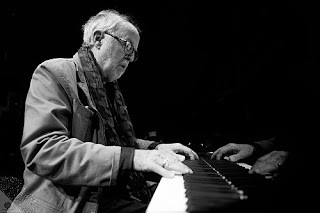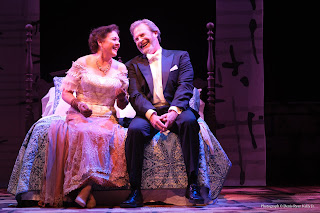Bob James Trio shows leader's longevity on common ground of smooth jazz
For many years I've counted Bob James as being on questionable territory when it came to the jazz I was interested in. He was part of the "smooth-jazz" subdivision that emerged during an era of jazz's marginalization after the metastasized rock revolution of the 1960s and 1970s. Was he approachable to a fault for the masses? Was his music a watered-down amalgamation of rock, soul, and the jazz tradition? Being sampled by hip-hop artists in recent years hasn't helped settle the question.
 Clearly, how to get a purchase on Bob James has been a problem. The encyclopedic editions of Morton and Cook's "Penguin Guide to Jazz on CD" don't give him an entry, though his name appears in several places as a sideman, according to the index. He apparently never caught the ears of the New Yorker's Whitney Balliett, whose "Collected Works: A Journal of Jazz 1954-2001" doesn't mention him. In "Weather Bird: Jazz at the Dawn of Its Second Century," Gary Giddins calls him "the jazz-lite guru" (less calories than their regular jazz?).
Clearly, how to get a purchase on Bob James has been a problem. The encyclopedic editions of Morton and Cook's "Penguin Guide to Jazz on CD" don't give him an entry, though his name appears in several places as a sideman, according to the index. He apparently never caught the ears of the New Yorker's Whitney Balliett, whose "Collected Works: A Journal of Jazz 1954-2001" doesn't mention him. In "Weather Bird: Jazz at the Dawn of Its Second Century," Gary Giddins calls him "the jazz-lite guru" (less calories than their regular jazz?).
 |
| Bob James is showing local audiences he knows his way around the piano. |
"Music Hound Jazz: The Essential Album Guide" affords him a helpful entry, though it opens with offhand dismissiveness: "In the pantheon of influential jazz keyboardists, no one will ever confuse Bob James with Thelonious Monk." Uh, noted. At the end of Music Hound's survey, the first name listed among those who influenced him is Cecil Taylor. Yes, the assaultive piano avant-gardist Cecil Taylor, an odd choice suggesting that the tedium from which contributors to bulky reference works may try to escape leads to facetiousness. (I wonder if the editor meant the producer Creed Taylor, who had much to do with James' career.)
Before I knew much of James' core output well, I received for review an LP titled "Rameau." It remains among the more imaginative interpretations of classical music by a jazz musician I've ever encountered. It would not be likely for a musician of narrow achievement in a genre so linked to pop to venture into the work of a baroque French composer. Jean-Philippe Rameau's short pieces adapt well to treatment on the electronic synthesizer. Giddins makes fun of "Rameau" because the album was generated as a gift from James to several on his Christmas list.
Last night at the Jazz Kitchen, I finally got the chance to hear the veteran pianist live, and my sense from recordings that he is a musician worth more than his smooth-jazz reputation was verified.
Of course, James' musicianship bears evidence of having absorbed a variety of music and accommodated it to his style. Just as an excellent trio album "Take It from the Top" leads off with "Billy Boy" and "Straighten Up and Fly Right," you can hear how James long ago absorbed the likes of Red Garland and Nat Cole and has forged an individual manner from them and a host of others (though probably not Cecil Taylor).
With youngsters Michael Palazzolo on bass and James Atkins on drums, the 83-year-old hard-to-pigeonhole maestro put his signature arranging and performing skills on songs ranging from "Caravan" to "Every Time We Say Goodbye," producing the same sort of charming effect that the trio did with familiar James tunes ranging back to his career-defining Theme from "Taxi" (1978). In recent years, I've scorned the domination of jazz festivals by out-and-out pop material. James, while he remains in dialogue with that world, does not seem wholly embedded in it.
As indicated by Friday's opening set in a jam-packed club (today's two remaining sets are sold out), James has a firm sense of audience appeal. And this one took him at his word that one of his new tunes was a "live" debut, and responded accordingly. As the set neared the end, the group closed with "Secret Drawer" from a CD due to be released in mid-September.
Fitting hand-in-glove with the trio was a guest Ukrainian saxophonist who's now living in this country with his family. Andrey Chmut, whose David Sanborn-like style is surely no accident, showed his mastery of the intensity and plaintiveness essential to that style. As with the two other young musicians chosen to maximize the James vibe, he made clear he belonged up there.
Some may think that in coming to praise Bob James, I have also buried him. But those aren't my shovelfuls of dirt tossed into a premature grave. There may always be parts of James' output I will avoid, but acknowledging his contributions to jazz as a wide-open genre seems a simple duty.



Comments
Post a Comment